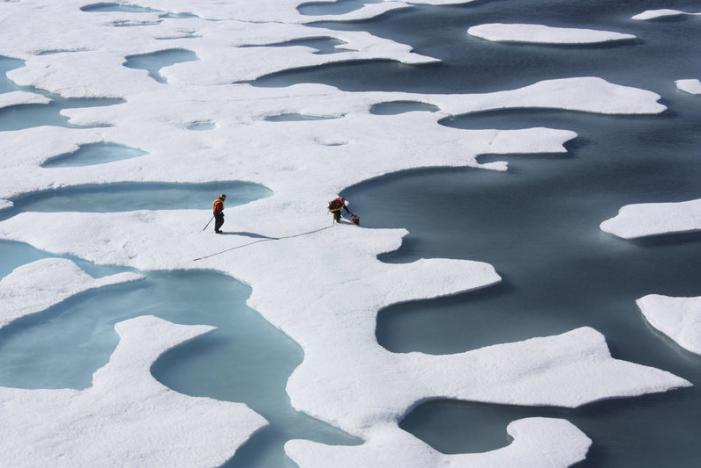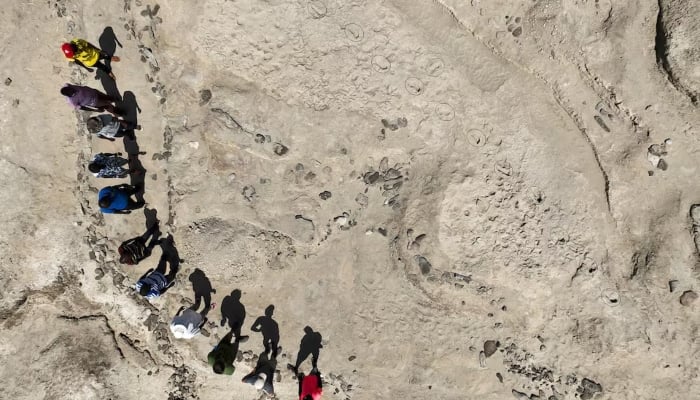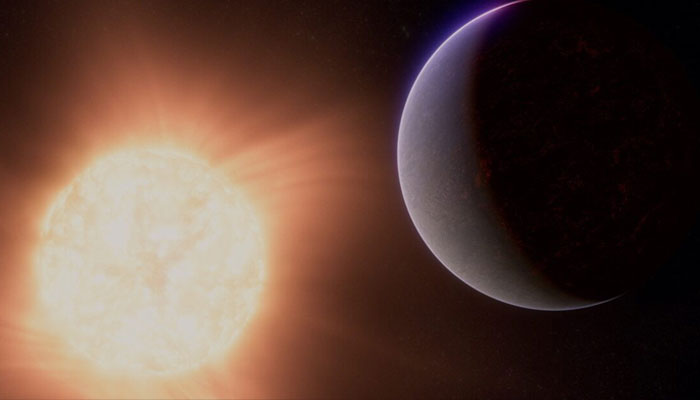Arctic Emissions Exceed Carbon Storage: Climate Change Impacts Worsen

The Arctic tundra has taken a drastic turn, emitting more carbon than it stores, exacerbating the effects of climate change. This alarming trend has been observed in the Circumpolar region, where wildfires have become increasingly frequent and intense. According to recent data, the average annual carbon emissions from these fires have surpassed 207 million tons since 2003. Furthermore, Arctic terrestrial ecosystems have consistently remained a source of methane, a potent greenhouse gas. The year 2023 witnessed the largest fire year on record, with Canadian wildfires burning more than twice the area of any previous year. The devastating fires emitted nearly 400 million tons of carbon, a staggering amount that surpasses the emissions from all other sectors in Canada combined. In 2024, Alaska recorded its second-warmest permafrost temperatures on record, a clear indication of the intensifying effects of human-caused climate change on high-latitude wildfires. As a result, the burned area, intensity, and associated carbon emissions from these wildfires have significantly increased, posing a significant threat to the environment and global climate stability.
Similar Perspectives
Facts that align with the main story
The Arctic tundra is emitting more carbon than it stores, which will worsen climate change impacts.
Circumpolar wildfire emissions have averaged 207 million tons of carbon annually since 2003.
Arctic terrestrial ecosystems have remained a consistent source of methane.
Different Perspectives
Alternative viewpoints by topic
Science>

Nasa launching new space telescope which may be better than JWST
published 387 days ago

NASA Spacecraft Embarks on Daring Journey to the Sun
published 423 days ago

Chinese Scientists Develop Climate-Resistant Potatoes to Combat Global Warming
published 449 days ago

Ancient Human Species Coexistence Revealed by Fossil Footprints
published 452 days ago

Scientists Discover Highest Energy Cosmic Ray Electrons Ever Seen
published 455 days ago

Astronomers Discover Fast-Forming Alien Planet Challenging Current Theories
published 456 days ago
Fact Comparison
| Fact | Tribune | Dawn |
|---|---|---|
| carbon_emissions | The Arctic tundra is emitting more carbon than it stores, which will worsen climate change impacts. | The Arctic tundra is now emitting more carbon than it stores, which will worsen climate change impacts. |
| wildfire_emissions | Circumpolar wildfire emissions have averaged 207 million tons of carbon annually since 2003. | Since 2003, circumpolar wildfire emissions have averaged 207 million tons of carbon annually. |
| wildfires | Human-caused climate change is intensifying high-latitude wildfires, which have increased in burned area, intensity, and associated carbon emissions. | Human-caused climate change is intensifying high-latitude wildfires, which have increased in burned area, intensity, and associated carbon emissions. |
| record_fire_year | 2023 was the largest fire year on record due to Canadian wildfires, which burned more than twice any other year on record in Canada. | 2023 was the largest fire year on record due to Canadian wildfires, which burned more than twice any other year on record in Canada. |
| wildfire_emissions | The fires emitted nearly 400 million tons of carbon -- more than two-and-a-half times the emissions from all other sectors in Canada combined. | The fires emitted nearly 400 million tons of carbon — more than two-and-a-half times the emissions from all other sectors in Canada combined. |
| permafrost_thaw | In 2024, Alaska recorded its second-warmest permafrost temperatures on record. | In 2024, Alaska recorded its second-warmest permafrost temperatures on record. |
| climate_change_impact | Human-caused climate change is intensifying high-latitude wildfires, which have increased in burned area, intensity, and associated carbon emissions. | The climate catastrophe we’re seeing in the Arctic is already bringing consequences for communities around the world. |
| tundra_caribou_numbers | Tundra caribou numbers have decreased by 65 per cent over the past two to three decades. | |
| ice_seal_populations | Alaska’s ice seal populations remain healthy, with no long-term negative impacts on body condition, age of maturity, pregnancy rates, or pup survival. | |
| The Arctic tundra is emitting more carbon than it stores, which will worsen climate change impacts. | ✔ | ✔ |
| Circumpolar wildfire emissions have averaged 207 million tons of carbon annually since 2003. | ✔ | ✔ |
| Arctic terrestrial ecosystems have remained a consistent source of methane. | ✔ | ✔ |
| 2023 was the largest fire year on record due to Canadian wildfires, which burned more than twice any other year on record in Canada. | ✔ | ✔ |
| The fires emitted nearly 400 million tons of carbon — more than two-and-a-half times the emissions from all other sectors in Canada combined. | ✔ | ✔ |
| In 2024, Alaska recorded its second-warmest permafrost temperatures on record. | ✔ | ✔ |
| Human-caused climate change is intensifying high-latitude wildfires, which have increased in burned area, intensity, and associated carbon emissions. | ✔ | ✔ |
Similar Perspectives
Facts that align with the main story
The Arctic tundra is emitting more carbon than it stores, which will worsen climate change impacts.
Circumpolar wildfire emissions have averaged 207 million tons of carbon annually since 2003.
Arctic terrestrial ecosystems have remained a consistent source of methane.
Different Perspectives
Alternative viewpoints by topic
Science>

Nasa launching new space telescope which may be better than JWST
published 387 days ago

NASA Spacecraft Embarks on Daring Journey to the Sun
published 423 days ago

Chinese Scientists Develop Climate-Resistant Potatoes to Combat Global Warming
published 449 days ago

Ancient Human Species Coexistence Revealed by Fossil Footprints
published 452 days ago

Scientists Discover Highest Energy Cosmic Ray Electrons Ever Seen
published 455 days ago

Astronomers Discover Fast-Forming Alien Planet Challenging Current Theories
published 456 days ago
1737372268-0/meghan-(6)1737372268-0.jpg)

_updates.jpg)





_updates.jpg)